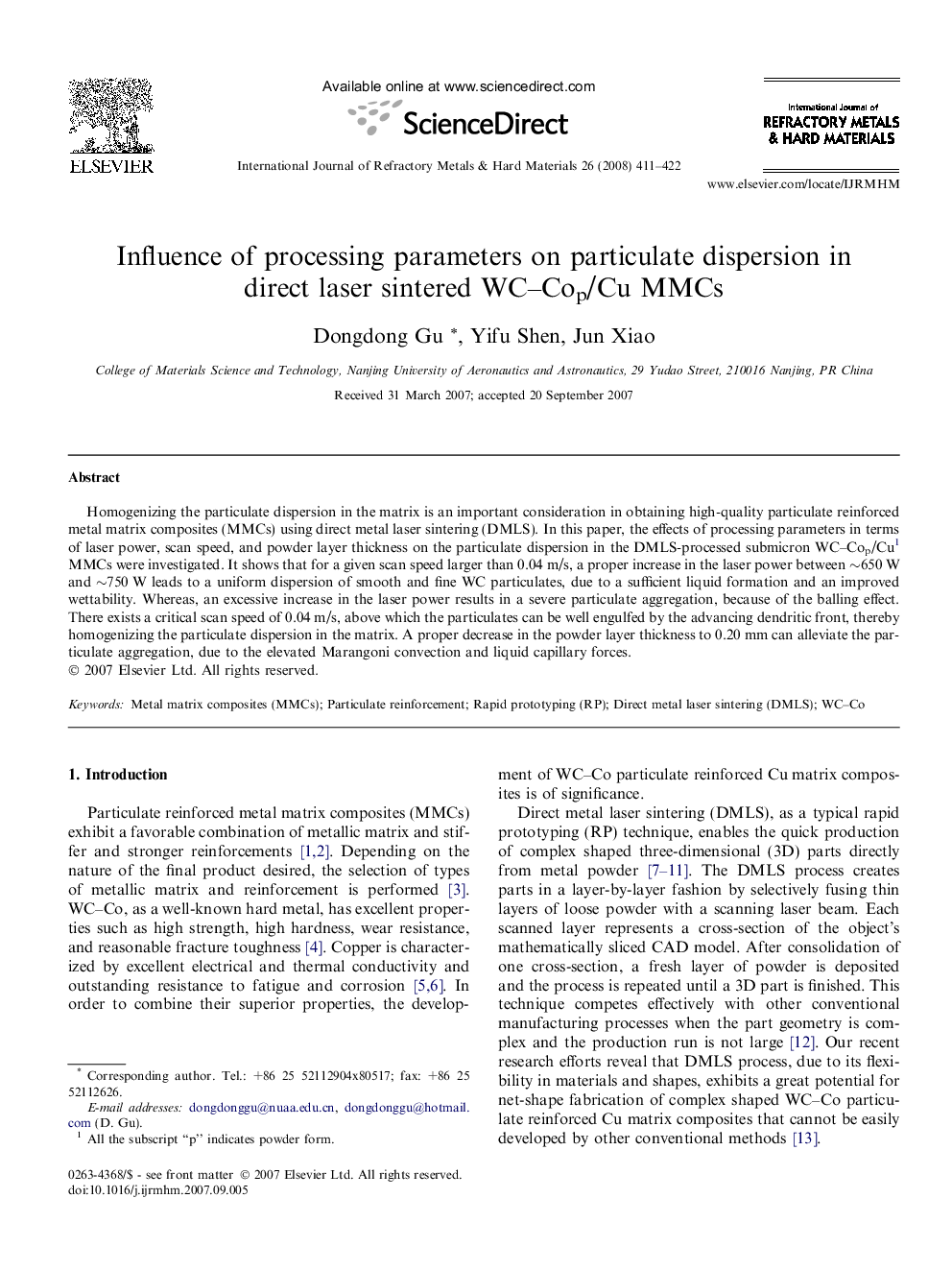| Article ID | Journal | Published Year | Pages | File Type |
|---|---|---|---|---|
| 1604484 | International Journal of Refractory Metals and Hard Materials | 2008 | 12 Pages |
Abstract
Homogenizing the particulate dispersion in the matrix is an important consideration in obtaining high-quality particulate reinforced metal matrix composites (MMCs) using direct metal laser sintering (DMLS). In this paper, the effects of processing parameters in terms of laser power, scan speed, and powder layer thickness on the particulate dispersion in the DMLS-processed submicron WC-Cop/Cu1 MMCs were investigated. It shows that for a given scan speed larger than 0.04Â m/s, a proper increase in the laser power between â¼650Â W and â¼750Â W leads to a uniform dispersion of smooth and fine WC particulates, due to a sufficient liquid formation and an improved wettability. Whereas, an excessive increase in the laser power results in a severe particulate aggregation, because of the balling effect. There exists a critical scan speed of 0.04Â m/s, above which the particulates can be well engulfed by the advancing dendritic front, thereby homogenizing the particulate dispersion in the matrix. A proper decrease in the powder layer thickness to 0.20Â mm can alleviate the particulate aggregation, due to the elevated Marangoni convection and liquid capillary forces.
Keywords
Related Topics
Physical Sciences and Engineering
Materials Science
Metals and Alloys
Authors
Dongdong Gu, Yifu Shen, Jun Xiao,
